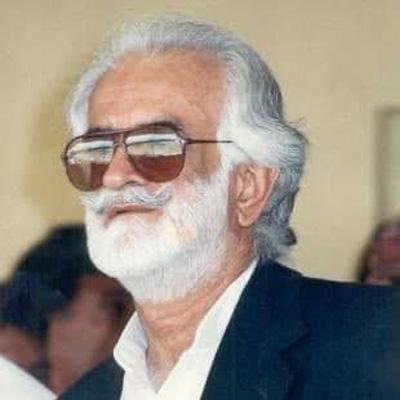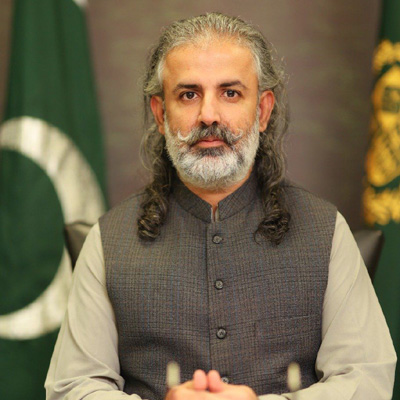
A fearless patriot, Nawab Muhammad Akbar Khan Bugti was a former Governor and Chief Minister of Balochistan, known for his unwavering dedication to the rights of his people.

Grandson of Akbar Bugti, Nawabzada Shazain Bugti has modernized JWP and continues to advocate for peaceful resolution, tribal unity, and resource justice in Balochistan. He served as:Member of National Assembly (2018–2023)
In 1990, Shaheed Nawab Muhammad Akbar Khan Bugti – one of Pakistan’s most prominent tribal leaders and a staunch advocate of provincial rights – founded the Jamhoori Watan Party (JWP), marking a pivotal moment in the country’s political landscape. By establishing this political platform, Nawab Akbar Khan Bugti sought to translate his principled beliefs regarding democracy, justice, and provincial autonomy into practical political action.
The early 1990s were a turbulent period in Pakistani politics, characterized by instability, repeated changes in government, and rising demands for greater representation from smaller provinces. Nawab Akbar Khan Bugti observed that the major political parties based in central Pakistan often overlooked the voices and genuine concerns of the people from the marginalized regions — particularly Balochistan. In response to this recurring neglect, he founded the Jamhoori Watan Party with a clear vision to represent the people of Balochistan and to raise their issues at the national level.
The name “Jamhoori Watan Party” was carefully chosen by Nawab Akbar Khan Bugti to reflect the fundamental principles that he believed should define Pakistan: democracy (Jamhooriyat) and homeland (Watan). It symbolized his aspirations for a truly democratic country in which every citizen, regardless of region or ethnicity, could participate in decision making and benefit from the nation’s resources.
From its inception, the Jamhoori Watan Party gained recognition for its commitment to constitutional struggle and peaceful advocacy. Nawab Bugti emphasized political dialogue, rule of law, and the supremacy of the constitution as guiding principles for the party’s activities. Under his leadership, the party consistently raised issues regarding natural resource exploitation, provincial rights, and socio-economic injustice in the assemblies and through peaceful political platforms.
One of JWP’s most important achievements was its success in amplifying Balochistan’s voice in Pakistan’s mainstream political discourse. At a time when Baloch issues were often ignored or suppressed, the party fearlessly highlighted Balochistan’s grievances and demanded an equitable share in the country’s development process. Nawab Bugti frequently reminded the central government that national unity could only be guaranteed when all provinces were treated fairly and equally.
Despite facing political opposition and pressures at various times, Nawab Akbar Khan Bugti remained steadfast in his convictions. He believed that the Jamhoori Watan Party should not operate as a mere pressure group but as a full-fledged political organization working for long-term institutional reform. His courage, vision, and unwavering dedication earned him widespread respect even from his political opponents.
Over the years, the Jamhoori Watan Party firmly established itself as a symbol of democratic struggle in Balochistan. The party inspired many educated youth and intellectuals to join politics and contribute toward peaceful change. Nawab Bugti’s leadership further promoted the idea that politics should be based on principles, not opportunism or personal gain.
In conclusion, the founding of the Jamhoori Watan Party by Nawab Akbar Khan Bugti in 1990 was a landmark step in the political history of Pakistan. By giving a voice to the voiceless and advocating for a democratic and inclusive Pakistan, he played a vital role in strengthening the democratic culture of the country. The legacy of Nawab Akbar Khan Bugti and the Jamhoori Watan Party continues to inspire political movements dedicated to justice, equality, and the true spirit of democracy.
